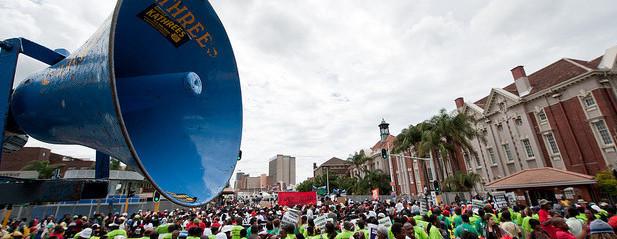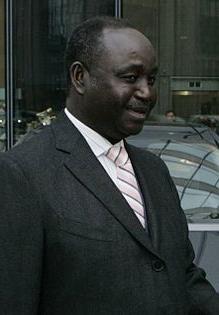ANC takes a kicking for not listening, By Renee Horne

As the results rolled in and into the early hours of the morning, the top brass of the African National Congress could be found celebrating their victories in the 2011 Municipal Election. However, there are some who are worried and questioning about the future. The commonest reaction was: we are still the most popular party in the land but our rivals are making gains, we need to watch out for opposition, particularly that Democratic Alliance. Compared to the 2006 municipal elections the ANC has seen both its number and share of the vote cut, the difference being largely made up by a strong showing from Helen Zille’s Democratic Alliance Party. The ANC may scream victory in the main cities and Commentators may argue that the DA aggressively campaigned to acquire the lucrative Black vote, hence eating into the ANC strongholds and the main cities, but the ANC’s percentage was lower than that of the 2006 municipal elections with the exception of Pretoria and Durban. And many people in the main cities; Johannesburg, Port Elizabeth and Ekurhuleni showed their discontent by not turning up at the polls, or merely voting for another party.
The loss of the Midvaal was a major blow for the ANC and the ruling party did not even make a dent on the DA’s firm grip in Cape Town. In fact the DA maintained its hold on the city with a more than 20% increase compared to 2006. I don’t believe it was the DA’s aggressive campaigning that gained this ground, rather the ANC should blame itself for not listening to the electorate. If the ANC thinks it can rely solely on its liberation credentials and that people will still vote on the strength of historical sentiment, it’s dead wrong!
Yebo – yes, the municipal elections were time for a reckoning. The writing had been on the wall for quite some time indicating that the electorate were sick and tired of poor service delivery. Adding fuel to the fire were the recently reported mismanagement and anti-corruption strikes protesting about the state run waste company, Pikitup which allowed the streets of Johannesburg to fill with rubbish for days. Then there was the row about the 16000 ANC-built toilets in the Free State that were not enclosed. Why were the toilets not enclosed? Why did this lead to an anti-corruption strike? The answers are as ever depressingly simple – politicians and their cronies continue to line their pockets. The Congress of South African Trade Unions’ (COSATU) constant rhetoric that the ANC needs to be more pro-worker and less crony capitalist has left an electorate weary and sceptical.
Asked if your municipality has done anything for you lately or do you know your councillor, most South Africans would say ‘no’ to both questions. However, the electorate do know the firebrand African National Congress Youth Leader, Julius Malema, and South Africa’s Populist President, Jacob Zuma. So the image these leaders create at a national level, and the scandals they create locally, filters down to the masses. You see enrichment at the top but it’s not happening to you. The promises the ANC has made do not appear to be forthcoming. Consequently, many are likely to become protest voters and question the value of voting at all at the next national elections in 2014. How 2014 goes really depends whether the ANC shapes up. Indeed, these municipal elections of 2011 are the ANC’s litmus test. Their lesson for the ANC would appear to be: “don’t take your electorate for granted; deliver on the promises you have made”.
On a more positive note, South Africa has again shown it is a mature democracy pulling off a free and fair election – a rare thing in Africa recently. The Independent Electoral Commission (IEC) received no major complaints, although some glitches did occur such as a few faulty scanners, voting stations not open on time, and, more seriously, the burning of an election tent at a ward outside Bloemfontein, in the Free State.
Hopefully the IEC will do a similar job and keep a watchful eye on the 2014 election. But the ruling party also needs to keep an eye on its declining support. In the meantime the developing debate over the decline in ANC voters could sharpen leadership battles further. What this might mean is anyone’s guess, but the party could resort to increasingly populist rhetoric to woo its lost voters from the 2011 municipal elections.
Renee Horne is a former journalist for the South African Broadcasting Corporation and is currently a senior PhD Candidate at SOAS – University of London. She is an editor for World Entrepreneur Society.







